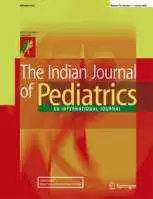Celiac.com 04/28/2008 - A life-long gluten-free diet is currently the only treatment for celiac disease. However, many foods thought to be gluten-free actually contain small amounts of gluten, making it difficult to maintain a truly gluten-free diet.
Gluten is made up of glutenin and gliadin proteins. Gliadin is only partially digested in the small intestine and the resulting peptides are responsible for the inflammation and intestinal tissue damage in people with celiac disease. Because probiotic bacteria have been shown to digest gluten proteins to harmless peptides, supplementation with probiotics may be beneficial for people with celiac disease.
To begin testing this hypothesis, researchers in Finland added probiotic bacteria to cultures of intestinal epithelial cells (cells that line the intestine) to determine their effect on gliadin-induced cellular damage. Gliadin-induced damage to intestinal epithelial cells includes increased permeability of the epithelial layer, alteration of tight junctions between cells (which controls the passage of materials across the intestinal wall), and structural changes such as “ruffling” of the cell edges. Two probiotic bacterial species were evaluated: Lactobacillus fermentum and Bifidobacterium lactis.
Celiac.com Sponsor (A12):
In this study, B. lactis was able to inhibit permeability caused by gliadin. Additionally, both B. lactis and L. fermentum were able to protect against cell ruffling and alterations in tight junctions. The bacteria alone (without gliadin) did not cause any significant changes to the intestinal epithelial cells.
Researchers concluded that Bifidobacterium lactis may be a useful addition to a gluten-free diet. Supplementation with this probiotic appears to be able to reduce the damage caused by eating gluten-contaminated foods and may even accelerate healing after initiating a gluten-free diet. It is important to note the researchers do not suggest that supplementation with probiotics could take the place of a gluten-free diet in the treatment of celiac disease.
Lindfors et al. Live probiotic Bifidobacterium lactis bacteria inhibit the toxic effects induced by wheat gliadin in epithelial cell culture - Clin Exp Immunol. 2008 Apr 16.








Recommended Comments